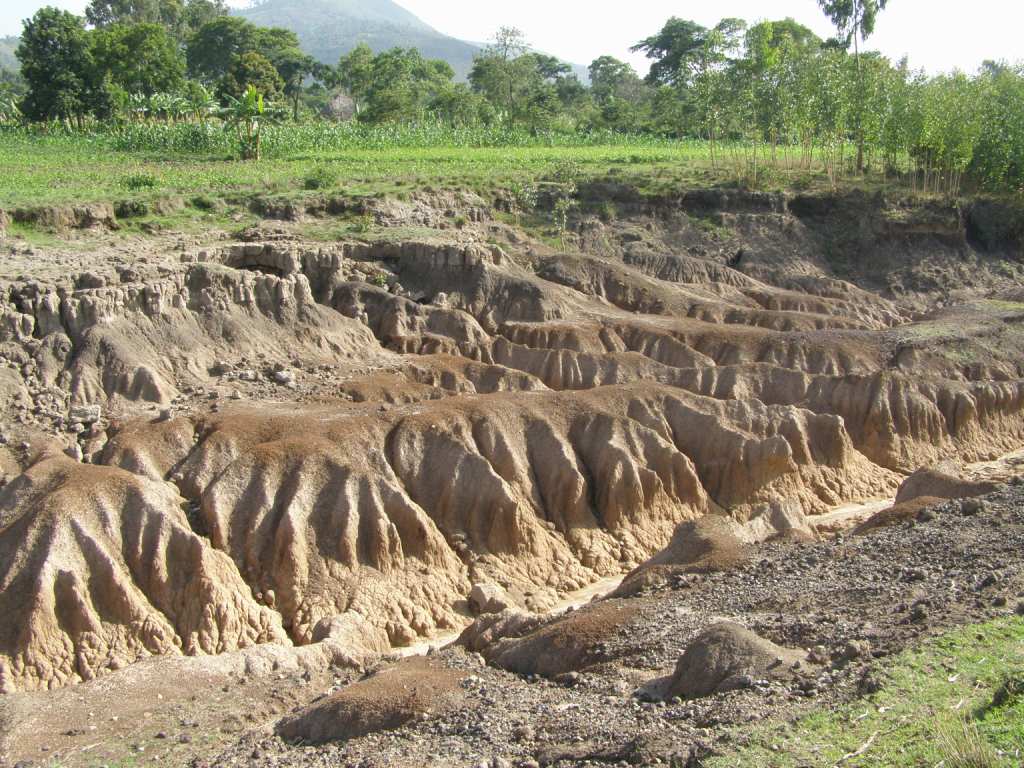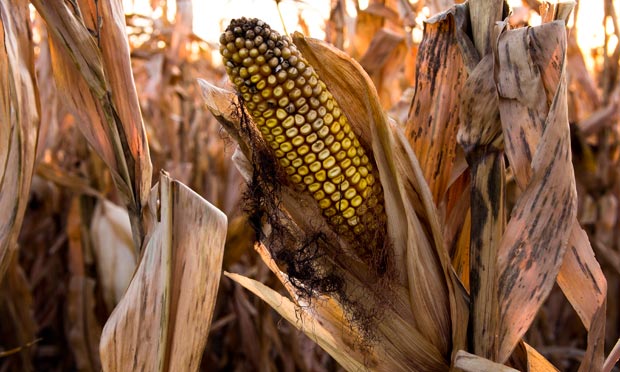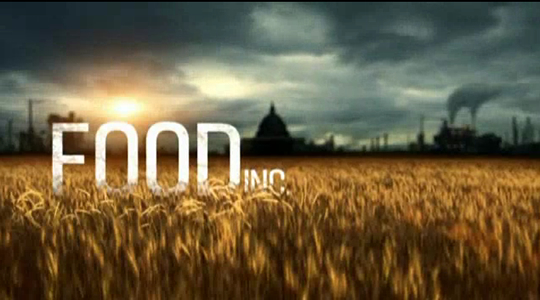 |
| Source: https://cropgenebank.files.wordpress.com/2009/06/soil-erosion.jpg |
Ever since mankind has existed and stopped their nomadic ways of life, they looked towards more conventional methods of gathering food. Slowly but surely they increased the size of their population through various farming techniques, knowledge of rich and fertile soil, and animal husbandry.
Fast forward to the 21st century, and you'll see quite a different story. I read the preface and chapter one of Lester Brown's Plan B 4.0, and he explains how our food uses and out climatic footprint are becoming more and more problematic. "With business as usual, I see a combination of the projected growth in population, the planned diversion of grain to produce fuel for cars, spreading shortages of irrigation water, and other trends combining to push the number of hungry people to 1.2 billion or more by 2015." (Brown 4). He continues describing the food scarcity problem: "The question, at least for now, is not will the world grain harvest continue to expand, but will it expand fast enough to keep pace with steadily growing demand." (Brown 9). I agree with Brown on these two points. The encroaching problem of food scarcity is almost at an all time high, and its a difficult situation to address in its entirety. There are many countries that cannot support their growing populations and it's becoming increasing grueling to not only themselves, but to other countries as well. Those countries that are in the crisis of a food scarcity problem may panic and decide to focus solely on their own locally produced product. Meanwhile in developed countries, they are producing more amounts of ethanol (a combination of corn and gasoline) which also increases their agricultural prices. Food responsibility and climate stabilization is an absolute necessity to decrease the trend of scarcity and protect our future.
 |
| Source: https://image.guim.co.uk/sys-images/Observer/Pix/pictures/2012/10/12/1350075098614/Dying-maize-plant-011.jpg |
However, when it comes to falling political power regarding countries, Brown uses a poor example for describing them. "States fail when national governments lose control of part or all of their territory... conflicts can easily spread to neighboring countries, as when the genocide in Rwanda spilled over into the Democratic Republic of the Congo." (Brown 18). He also describes how failing states provide possible radical breeding grounds. "Failing states can also provide possible training grounds for international terrorist groups, as in Afghanistan, Iraq, and Pakistan, or as a base for pirates, as in Somalia. (Brown 19). I feel that these two explanations are a bit melodramatic. These countries have been in a developmental ecosystem for quite some time now, and I don't believe that because of that early development, it leads to producing terrorists and mass genocides. Food scarcity is indeed a problem, but directly correlating that to solicitations of drugs and production of violence is outright irrelevant. I believe that Brown loses focus on his main point, and that hurts his overall vision he is trying to produce.
 |
| Source: http://www.foreignaffairs.com/files/imagecache/800x/images/Mazzar_Failed_1.jpg |


%5B1%5D.jpg)







